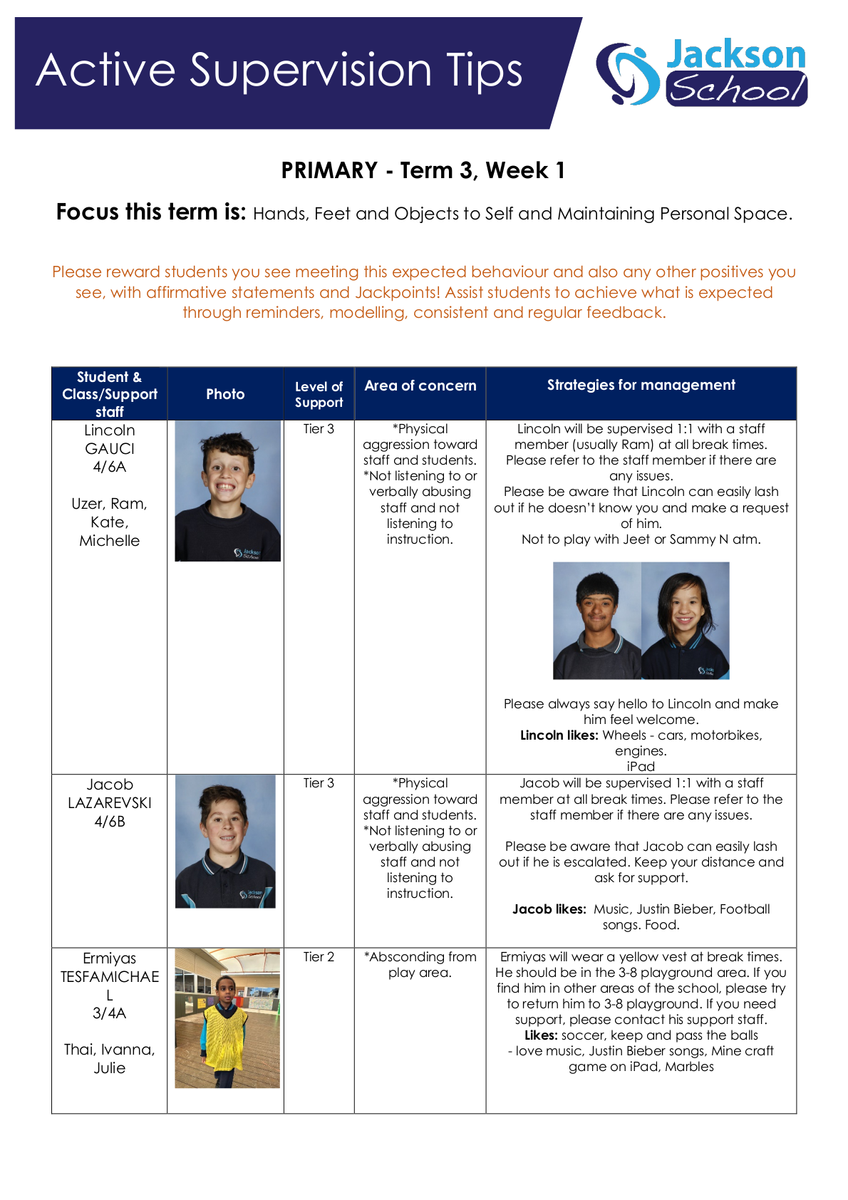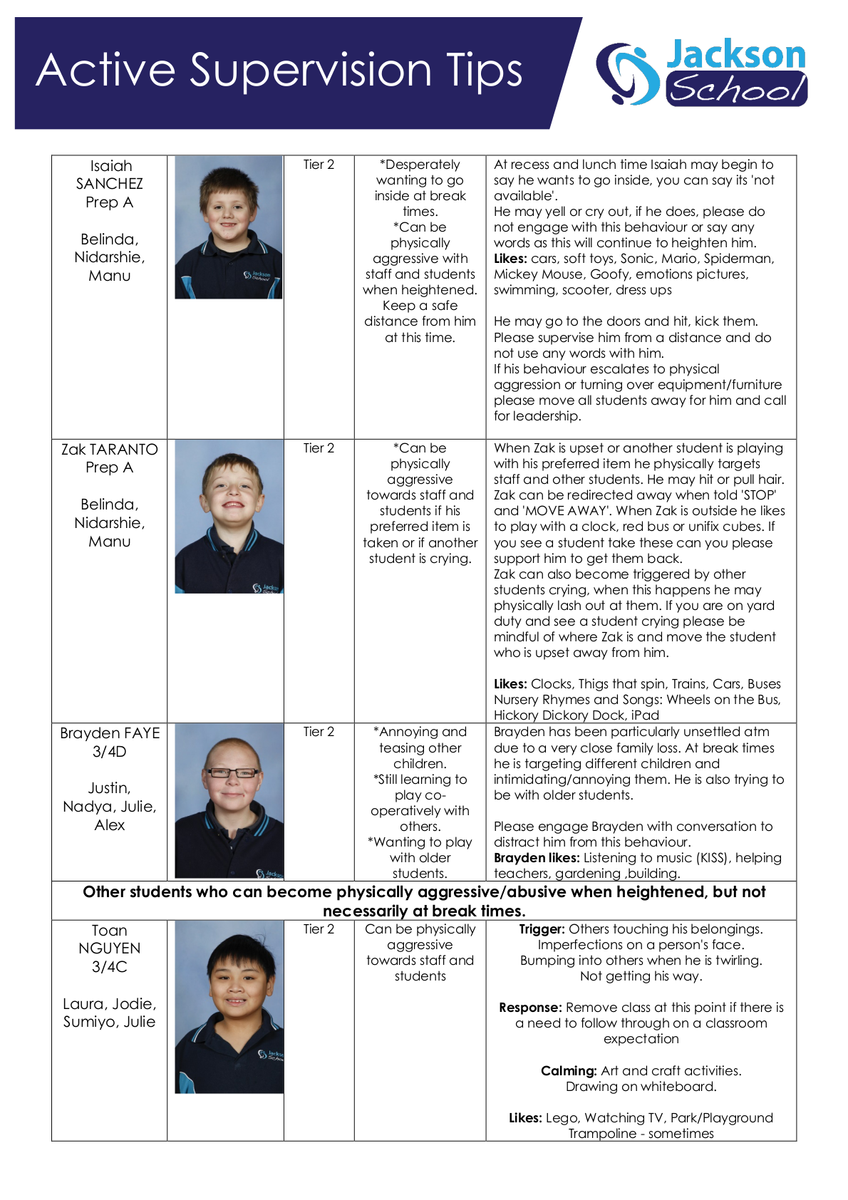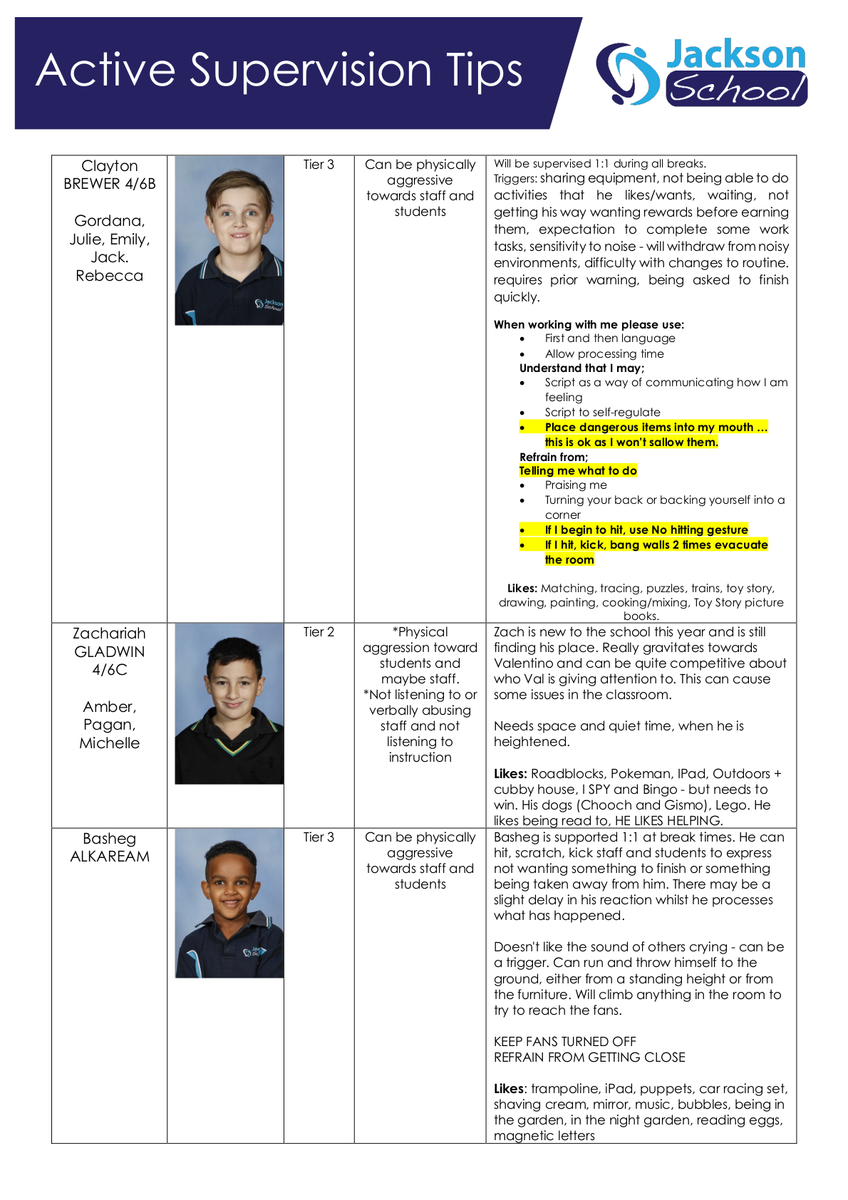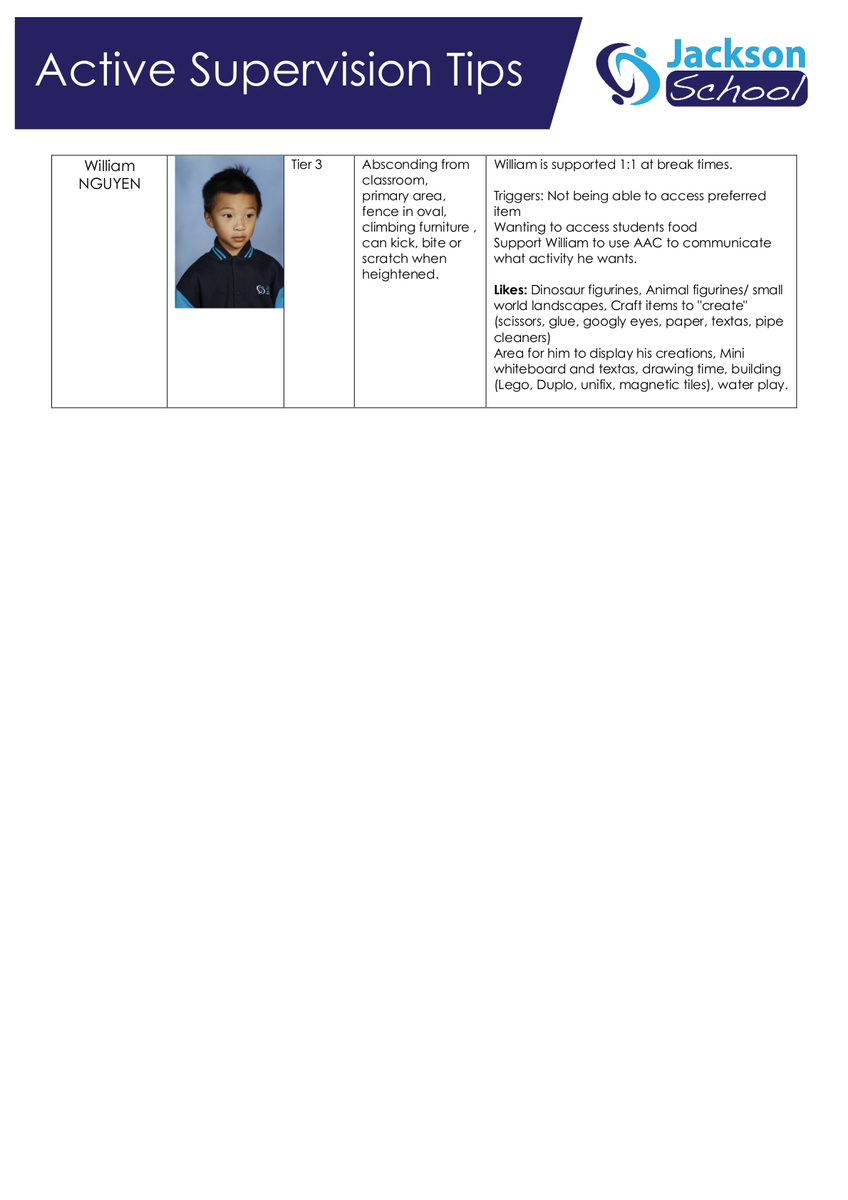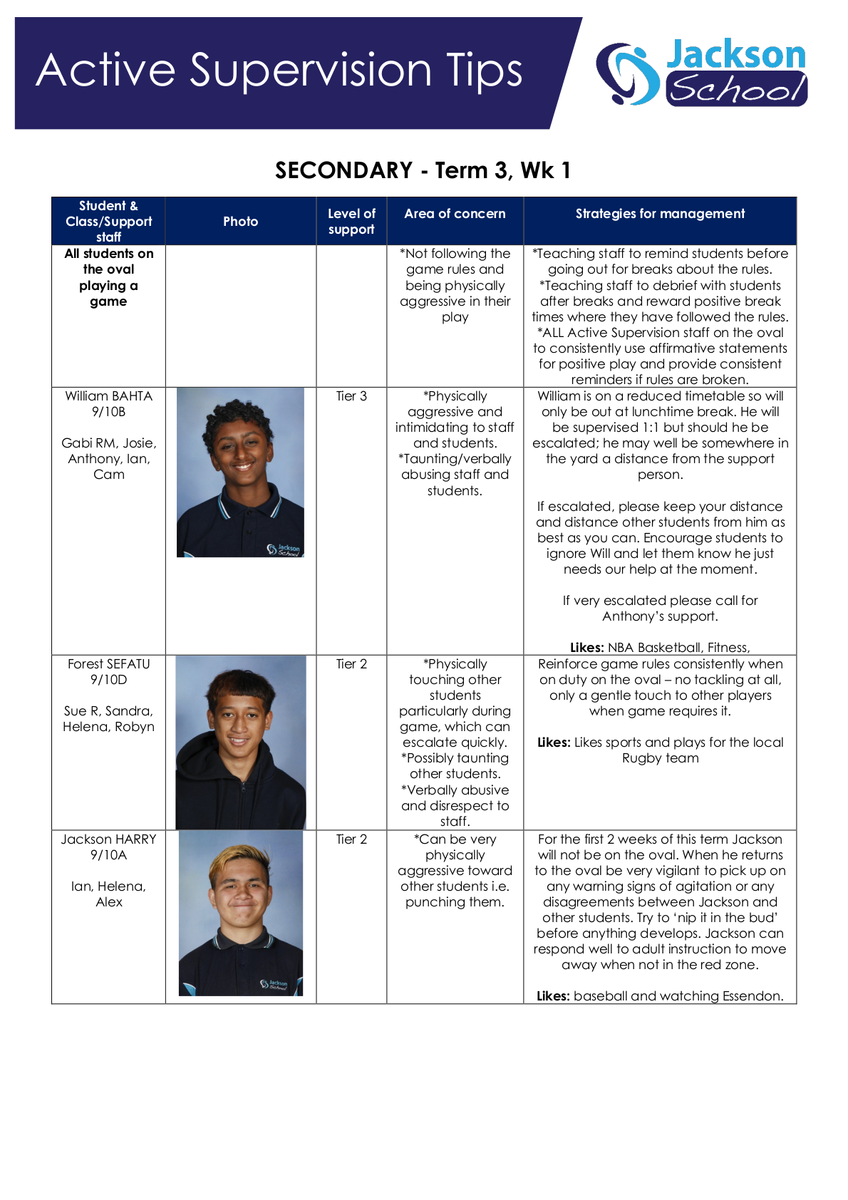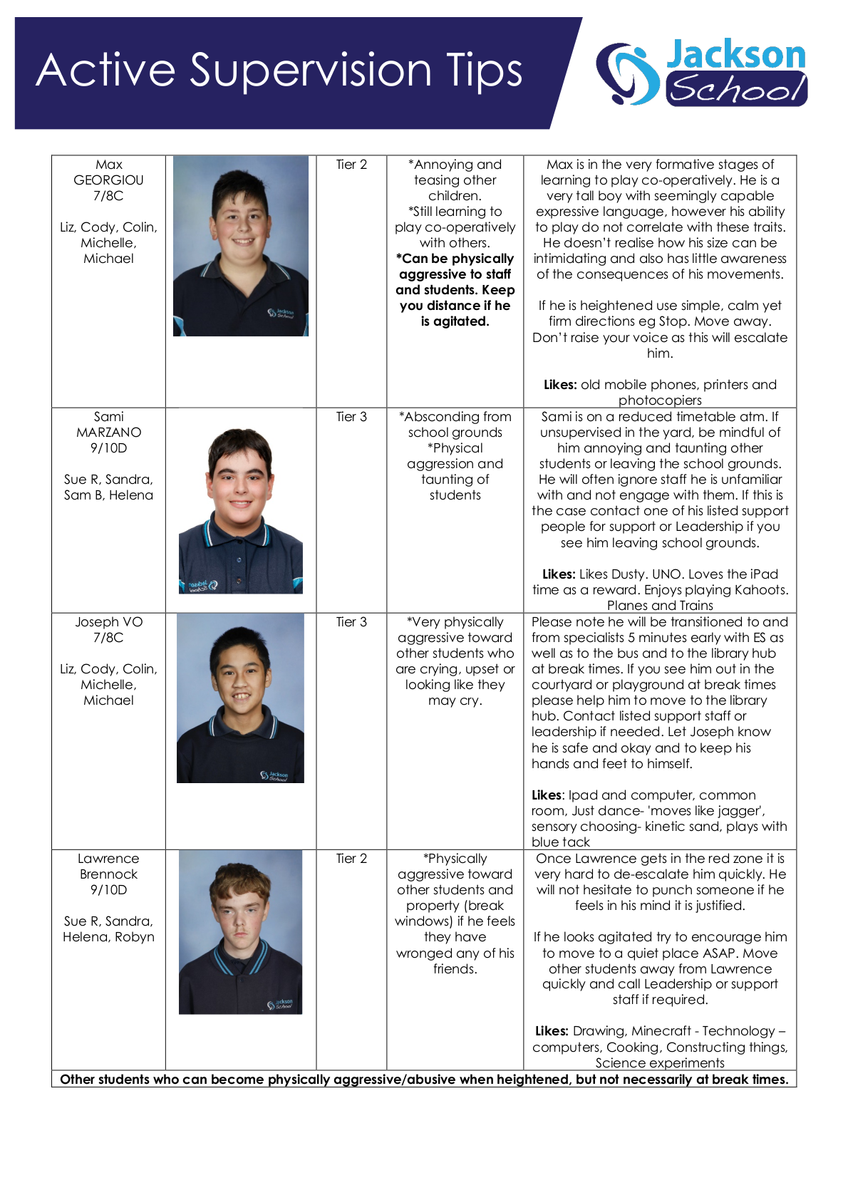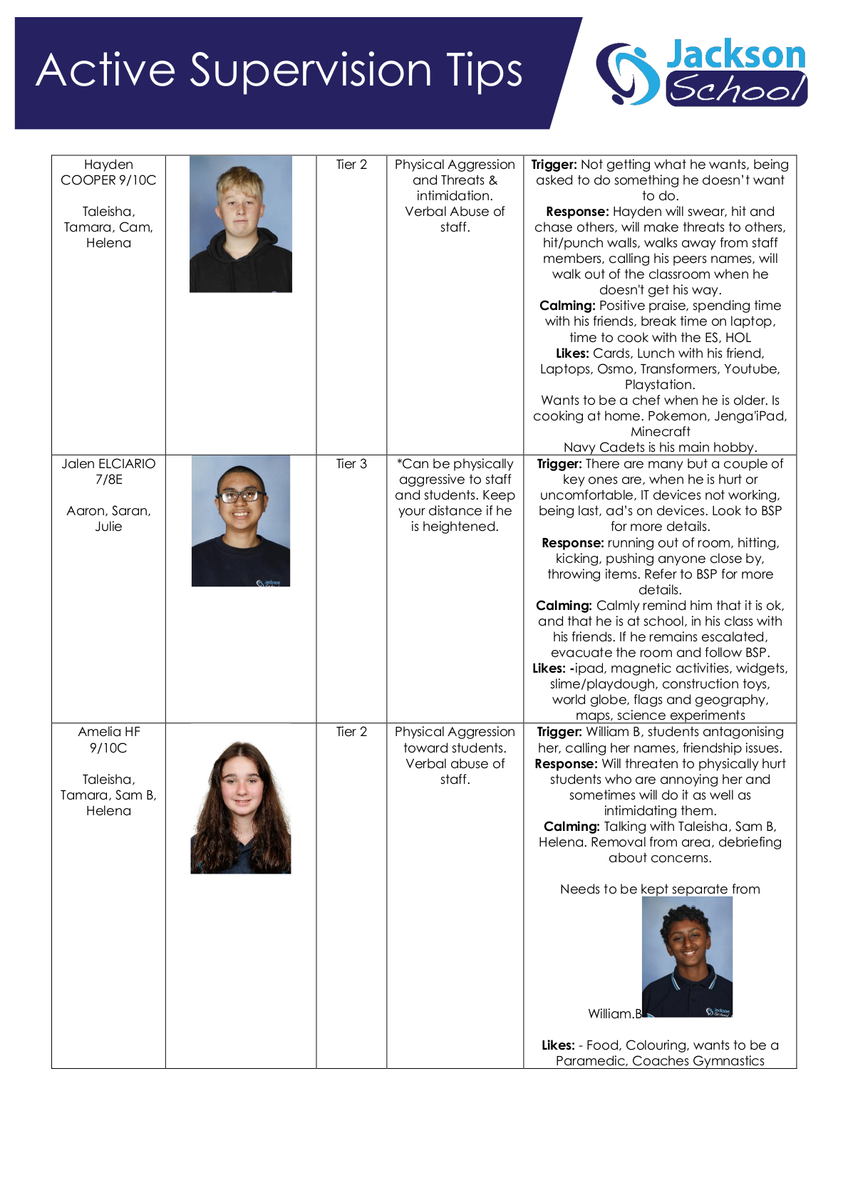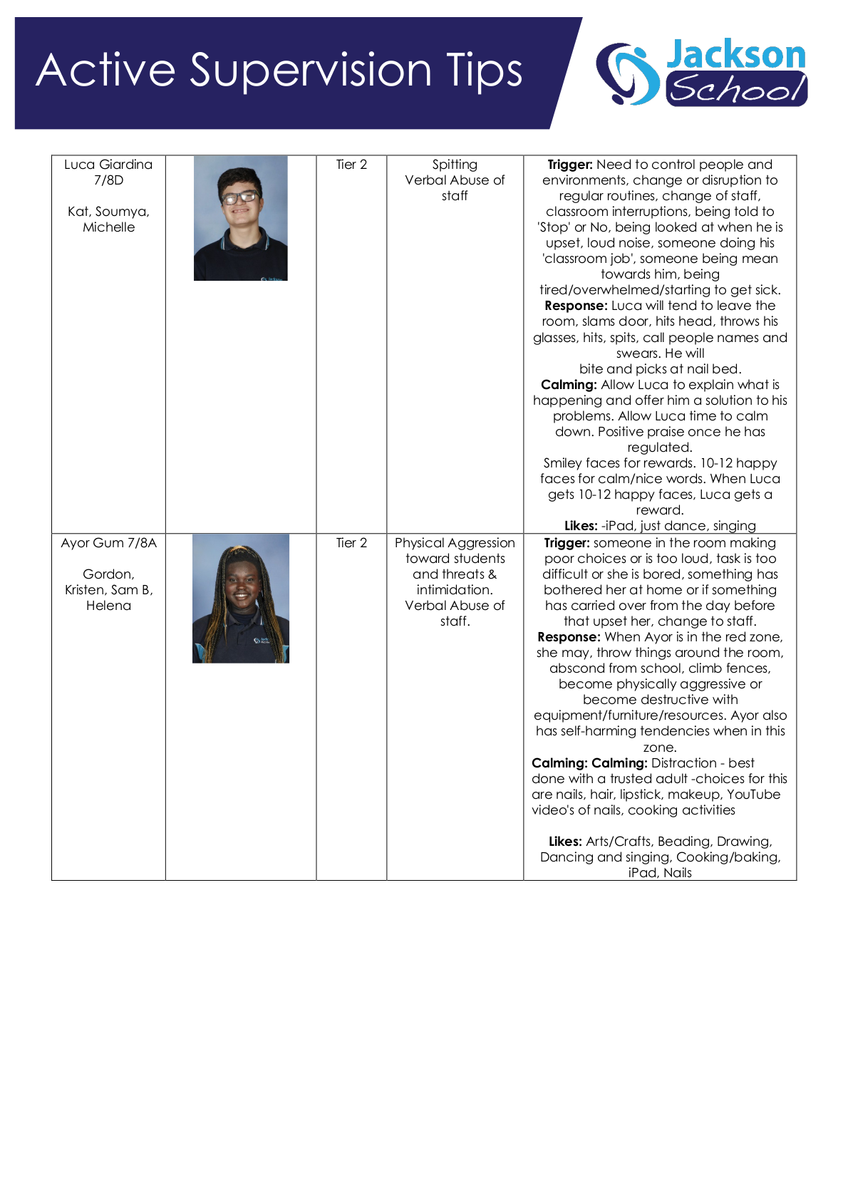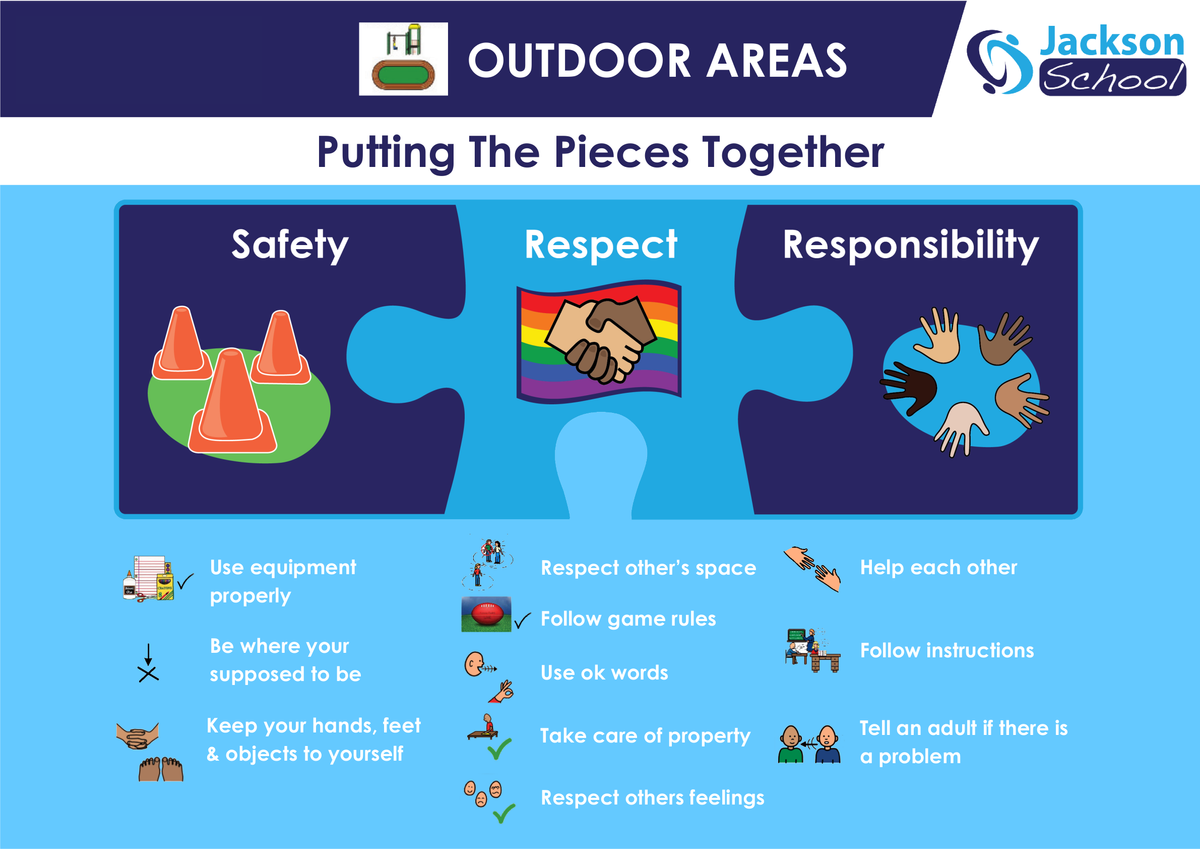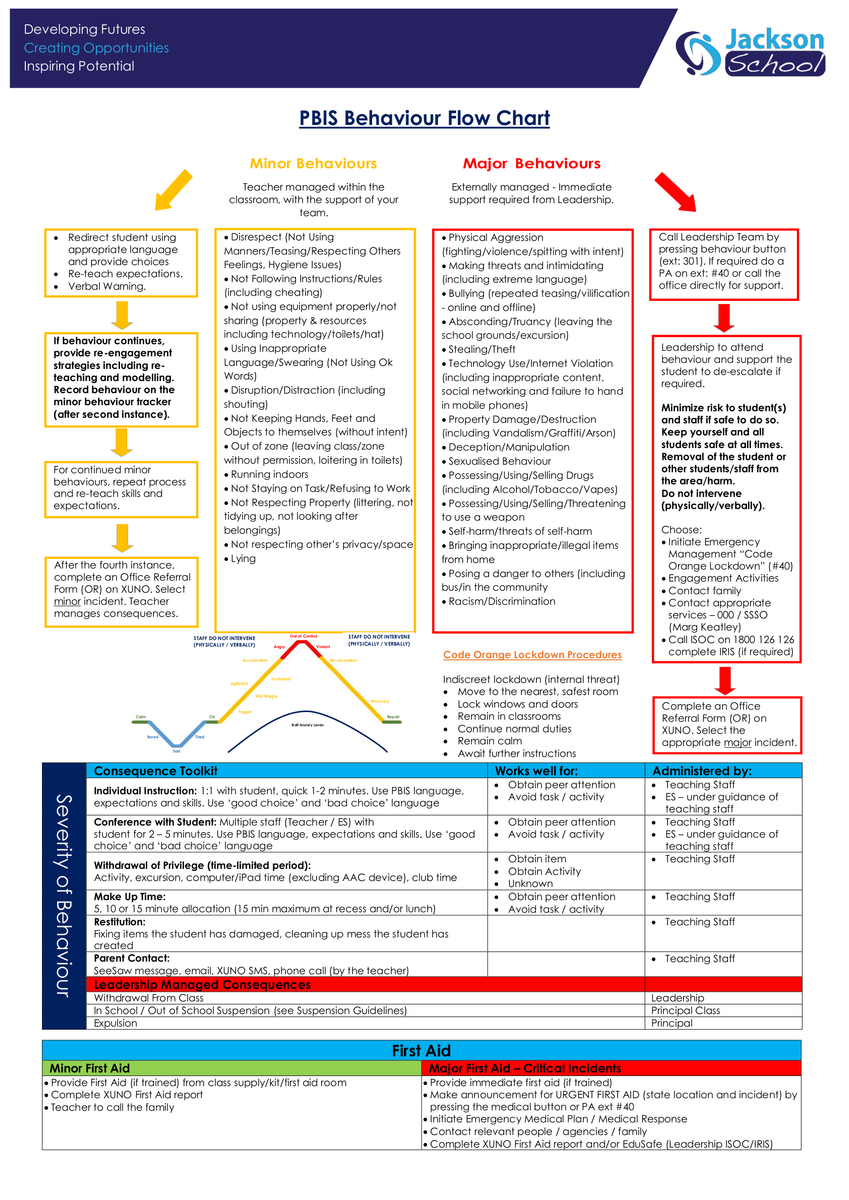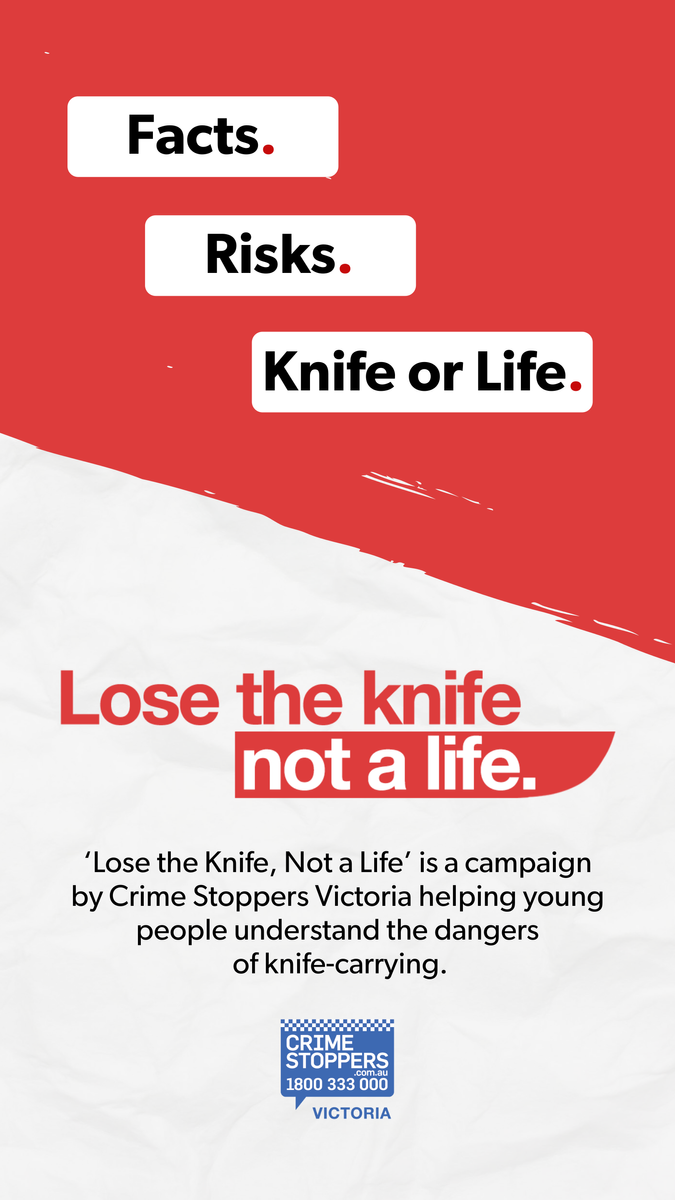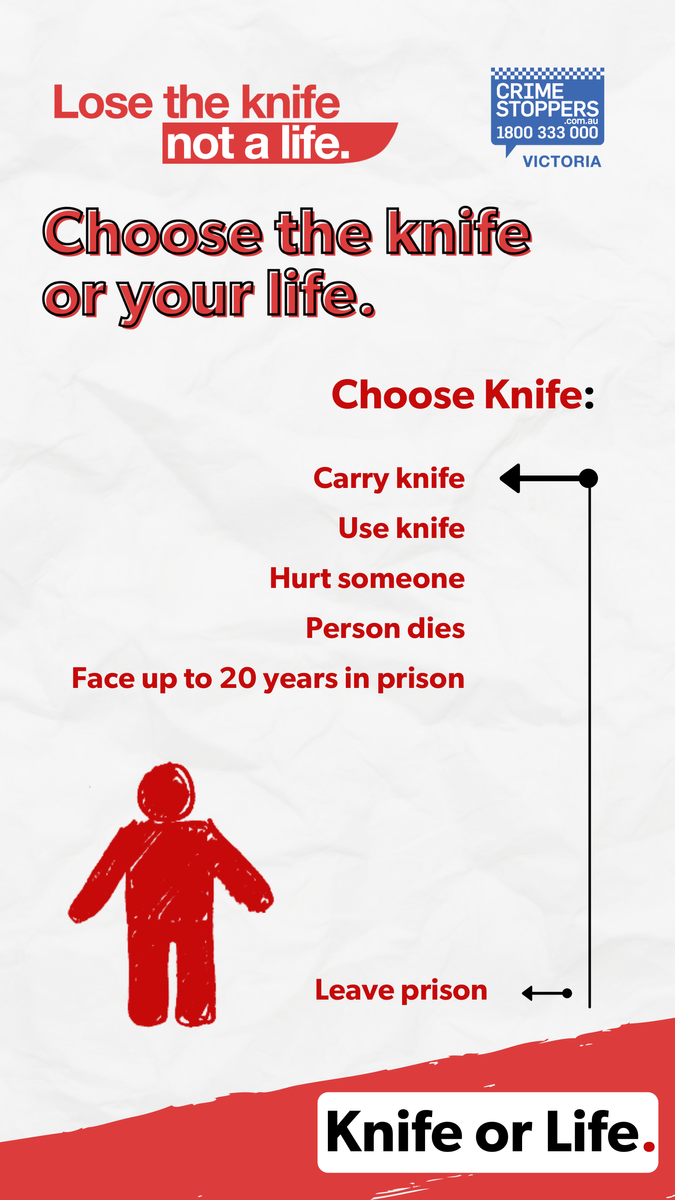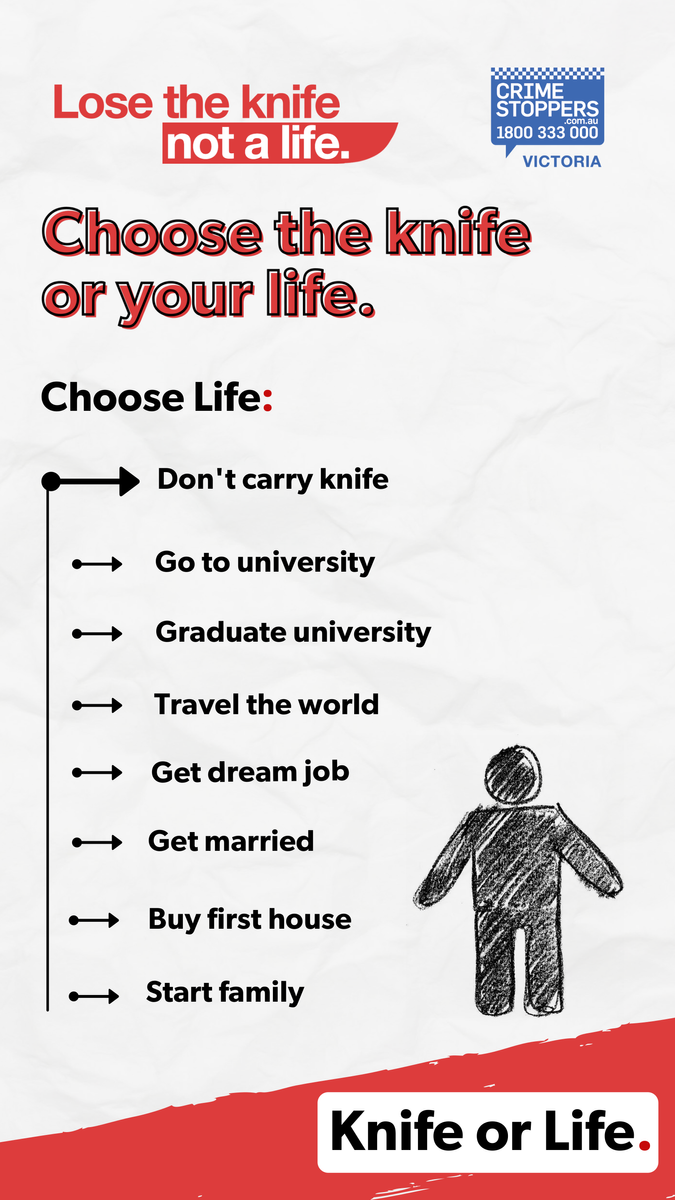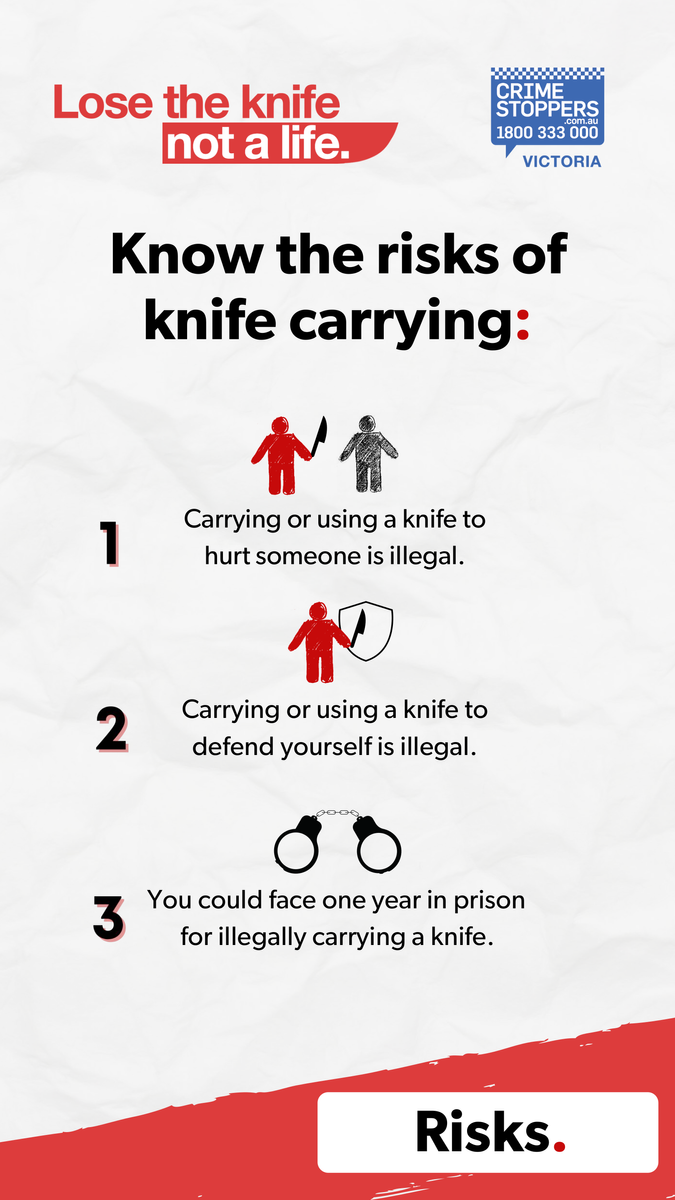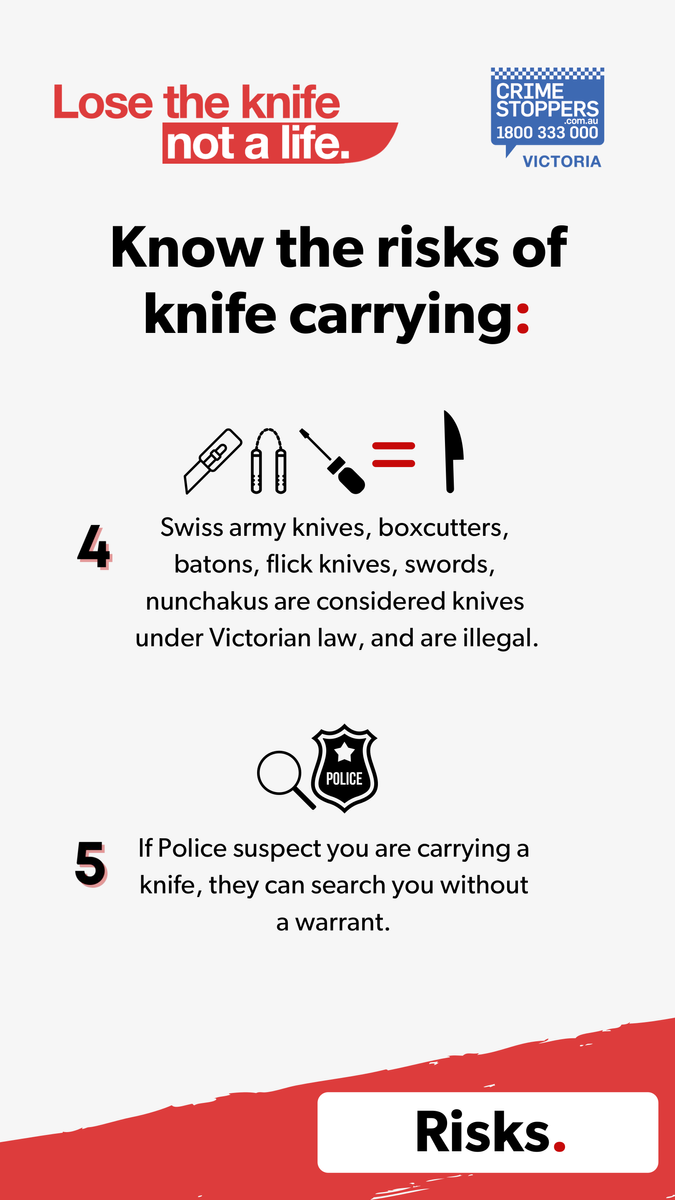Mental Health & Wellbeing

Active Supervision Tips
This year we have developed a dedicated Microsoft Teams Channel for Active Supervision Tips to support staff in supervising and managing students at recess and lunch.
Some students may also have a Recess/Lunch Supervision Plan in their Individual Education Plan (IEP) on Xuno. This includes details of before school, recess and lunch time supervision, locations and activity requirements.
The Wellbeing Team have also developed an overview of these plans which will be updated and published weekly. This is to make this information as visible and easily accessible to staff. These procedures are in place to maintain a safe and orderly school environment. It is a staff members responsibility to read these plans to know adjustments we have in place to meet individual student's learning and wellbeing needs. This ensures that staff and students remain safe at school.
We have also developed Tier 2 supervision zones (including Primary and Secondary Common Rooms) these zones have a higher level of supervision compared to our main recess/lunch zones. We have also allocated Inclusion Support ES and Wellbeing staff to Tier 3 Student Support at recess and lunch for specific students. Where these staff have additional allocated yard duties, staff are able to take their 30 minute break during lesson times.
School-Wide Positive Behaviour Supports (PBIS)
In 2023 we will be involved in the DE school-wide positive behaviour support coaching initiative with Shaun Fawkhead from the regional office. Shaun will support the SWPBS team in evaulating and refining our current PBIS practices.
The focus for this term is: Keeping Hands, Feet and Objects to Yourself (to maintain personal space)
This term in PBIS lessons, we are focusing on the outdoor areas, with a specific focus in the first few weeks of term on keeping, hands, feet and objects to yourself.
With this we are aiming to reduce the amount of physical contact between students as this lack of personal space can cause altercations and disagreements. A "no touch" policy is difficult to enforce and there are some occasions where physical touch between staff and students may also be appropriate, for example: BSEM positive greetings.
At Jackson we have developed some guidelines to provide clarity on the "keep hands, feet and objects to yourself" expectation.
Students Expectations
Examples of appropriate touch: high 5, shaking hands without a lot of force
Examples of inappropriate touch: hugging , hands/feet and objects to self
There is to be absolutely no physical contact on the oval within games at any times, except with the exception of a strictly controlled game by a staff member or Jarryd? This has been taught within Ben's PE lessons, i.e. it could be Touch Football where only light touch is allowed. Tackling is not permitted. This rule correlates with our normal expectation of keeping hands, feet and objects to self.
Staff Guidance
Examples of appropriate touch:
- holding/linking hands for transitions or safety
- Side hugging a distressed student for co-regulation
- tapping of a student with means for communication is ok, but not to be talked about with students
VIT offers the following guidance for teachers:
PRINCIPLE 1.5: Teachers are always in a professional relationship with their learners, whether at the education setting where they teach or not Teachers hold a unique position of influence and trust that should not be violated or compromised. They exercise their responsibilities in ways that recognise there are limits or boundaries to their relationships with learners. Teachers should consider how their decisions and actions may be perceived by others. Teachers should be aware of the specific vulnerabilities of learners when determining appropriate professional boundaries. The following examples outline some of those limits.
A professional relationship will be violated if a teacher (or ESS):
• touches a learner without a valid reason
• has a sexual relationship with a learner
• engages in sexual misconduct which includes behaviour, physical contact, speech or other communication of a sexual nature; inappropriate touching; grooming type behaviour; and voyeurism
• engages in communications with a learner beyond the boundaries of a professional relationship without a valid reason, including via written / electronic / online means (including social media)
• accepts gifts, which could be reasonably perceived as being used to influence them, from learners or their parents / carers / families
• gives gifts to learners or their parents / carers / families that could be reasonably perceived as showing bias or favouritism. A professional relationship may be compromised if a teacher
• socialises with learners (including online and via social media) outside of a professional context
• invites learners back to their home
• has a sexualised relationship with a former learner within two years of the learner completing their senior secondary schooling or equivalent. In all circumstances, the former learner must be at least 18 before a relationship commences.
Behaviour Flowchart
Staff should continue to redirect a student, re-teach expectations using the language of the skills on our PBIS posters and repeat this process three times to reinforce our expectated behaviours. On the forth instance staff should write a minor incident "office refferal" form. These are managed by the teacher in the classroom with the support of your team.
For major behaviours these are initially managed within the classroom where possible but leadership may be required to support with the behaviour and de-escalate the situation. It is vitally important that you keep yourself and other students safe at all times. Where required remove the other students from the zone.
We are attempting to reduce the amount of PA annoucements throughout the school day. This is disruptive to classroom learning, neighbours and meeting with families and external visitors. For Behaviour Support staff should continue to call 301. Following staff feedback, we are now setting-up virtual extensions so that this calls leadership mobile phones instead of office phones. Where possible your allocated Leading Teacher will be the first to respond to ensure consistency aligned to the student's behaviour support plan. Where they are not available or dealing with another behaviour, other members of leadership can also attend to support. Do not intervene physically or verbally if the student is escalated.
For major or critical behaviours, a PA annoucement can be made using #40 for "support to class/location please". Staff may also call an orange lockdown during an emergency management situation. If staff do please also call for leadership support and state the location of the emergency.
The new PBIS Team will review the Behaviour Flow Chart again in 2023 as part of the initiative.
Lose the Knife - Not a Life
As you are all aware, knife/edged weapon crime continues to rise and be of major concern for the safety and wellbeing of members of our community. There have been two fatal incidents in St Albans/Sunshine over the last couple of weeks where students in neighbouring schools have tragically lost their lives. We have received the following posters from the Proactive Policing Unit which were developed by crime stoppers as part of a campaign to target this issue. The campaign will be updated later this year, but in the mean time the Police have asked if we would display some copies, secondary toilet blocks etc to help keep our students safe. We do have some secondary students who are involved in gang-related behaviours outside of school and have carried weapons for them to feel safe within our community. I would have for a Jackson students to be the next victim of local knife crimes.
To download these posters, please click below:

